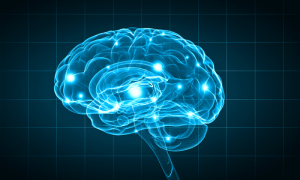por
Thomas Dworetzky, Contributing Reporter | December 13, 2016
Gadolinium boosts MR quality but in recent years the contrast agent has come under fire for accumulating in the brains of patients after repeated use.
A newly published study by researchers at the NeuroCure Clinical Research Center and Department of Radiology of Charité - Universitätsmedizin Berlin and the Max Delbrück Center for Molecular Medicine, looked at multiple sclerosis patients to add some new evidence to the ongoing discussion.
According to author, Dr. Michael Scheel, they found that patients who received macrocyclic gadolinium-based contrast agents showed no evidence of gadolinium brain deposition.



Ad Statistics
Times Displayed: 75267
Times Visited: 5317 MIT labs, experts in Multi-Vendor component level repair of: MRI Coils, RF amplifiers, Gradient Amplifiers Contrast Media Injectors. System repairs, sub-assembly repairs, component level repairs, refurbish/calibrate. info@mitlabsusa.com/+1 (305) 470-8013
The researchers go on to add that "available data currently suggest that the risk of deposits is considerably higher with contrast agents that have a linear molecular structure. This effect appears to be absent, or much reduced, when using contrast agents with a ring-shaped, macrocyclic structure."
The study appeared in the
Multiple Sclerosis Journal.
Previous research had revealed that the rare-earth-based contrast agent deposits are “permanent,” noted the researchers.
But they added that, to date, nothing has suggested that the presence of gadolinium presents a risk to health.
“However, evidence regarding the existence of gadolinium deposition in different brain regions has caused uncertainty and concern among patients and physicians,” they advised, noting that the “issue of gadolinium deposition is of particular relevance to patients with multiple sclerosis.”
MS patients typically are diagnosed at a relatively young age and then go on to receive “a relatively high number of contrast-enhanced MR scans throughout their lives.”
The study looked at two commonly used MR contrast agents. They confirmed that “repeated use of a certain type of linear contrast agent leads to deposits in a key area of the cerebellum.”
The implications for the clinician, advised the researchers, was that “before performing contrast-enhanced MR examinations in patients with MS,” these findings should be given “due consideration.”
At Charité, for example, “only agents with a macrocyclic structure have been used as MRI contrast agents for several years.”
The last ten years has seen gadolinium's reputation as “one of the safest drugs there was” come into question, Dr. Emanuel Kanal, a professor of radiology and the director of MR services at the University of Pittsburgh Medical Center,
told HCB News in March.
In 2006 reports surfaced that use of FDA-approved GBCAs in people with renal woes could result in nephrogenic systemic fibrosis, which has no cure.
Then in 2013 came the first reports of its accumulation in the brain. “No one told us it would stay in the body,” said Kanal at the time. “They told us it had a half-life of 90 to 120 minutes and after 6 or 9 hours most of it is gone, and we assumed that after a day or two there’s no trace left.”
He explained that there are three macrocyclic GBCAs on the market — Dotarem (Guerbet), Gadavist (Bayer) and ProHance (Bracco).
This latest study confirms his statement to HCB News at the time that current evidence suggests that accumulation happens less with this group, or perhaps at a slower rate, than with linear agents.

